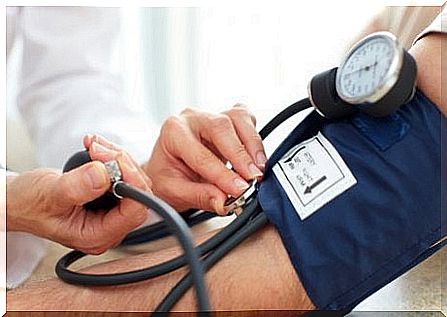Eleven Symptoms Of Vitamin D Deficiency

Vitamin D is a fat-soluble nutrient. Together with other vitamins and minerals, it helps to regulate the functioning of the main body systems.
You naturally absorb this vitamin when the skin is exposed to the sun’s rays, but you can also find it in certain foods and supplements.
It is known for its indispensable value for the absorption of calcium and phosphorus. These minerals ensure strong bones and teeth. Vitamin D is also very important for the muscles, brain, heart and other organs. Proper functioning of these body parts is a guarantee for a good quality of life.
The problem is that not everyone gets enough vitamin D. This can trigger certain symptoms and health problems. These can often get worse if you don’t address the lack of this vitamin in time.
That is why it is important that you know how to determine a lack of vitamin D, because then you can take the necessary measures and absorb enough of this vitamin daily. Find out in this article which symptoms to watch out for!
The symptoms of a lack of vitamin D
1. Weakened Muscles and Bones
The muscles and bones become weaker when the amount of vitamin D in your body drops significantly. The result is an imbalance in magnesium levels. This is another fundamental mineral you need to stay strong and healthy.
2. Depression
Low levels of this important nutrient are associated with a tendency to experience irritability, depression and sudden mood swings.
Vitamin D is involved in the secretion of hormones that make you feel good. So if you have too little of this vitamin, it will affect your mental health.
3. Inflammation and Pain
Vitamin D, like many other essential nutrients, plays a role in controlling the inflammatory processes in the body. It helps you avoid conditions such as susceptibility to pain or joint problems.
A low level of this vitamin therefore increases the risk that you will suffer from these types of problems. This will make it difficult to manage chronic pain.
4. Dental Problems
We have already mentioned that a lack of vitamin D prevents the absorption and use of calcium in the teeth. As a result, you run a greater risk of infections and deterioration or loss of the teeth.
In addition, if you continue to have problems with inflammation, this can lead to the following symptoms:
- redness
- irritation
- Bleeding gums
5. High Blood Pressure

When your blood pressure rises, you also have to take this into account. It can be a result of a possible deficiency of certain nutrients.
This is a cardiovascular disorder that can be caused by several factors. A lack of vitamin D can also contribute to complications.
6. Fatigue
A limited intake of vitamin D can affect your physical and mental performance. This creates a severe feeling of fatigue.
Often a person feels sleepy. In addition, he is no longer able to perform normal daily tasks.
7. Weight Gain
Vitamin D is a nutrient that dissolves fat. Therefore, people who are overweight or obese should take this vitamin in higher amounts.
When the level drops, it can cause problems with the metabolism. As a result, it becomes difficult to maintain a healthy weight.
8. Asthma
Deficiency of vitamin D also interferes with the treatment of asthma. That’s because it’s linked to poor lung function.
Try to get enough of this vitamin. This will help control asthma problems. It blocks the proteins that cause inflammation in the lung tissues.
9. High Cholesterol
This vitamin therefore has several tasks to fulfill in your body. One of those tasks is its role in removing the bad cholesterol (LDL) from the bloodstream.
So you have to provide an appropriate amount of vitamin D. If you don’t do this, you run a higher risk of problems with high cholesterol.
10. Colds and Flu
When the amount of vitamin D is low, it affects the production of antibodies in your immune system. So you are more likely to get colds and flu.
Since this vitamin is insufficient in your body, the airways and respiratory tissues are more easily irritated.
11. Gut Problems
Fat absorption problems are often related to a lack of vitamin D. This, in turn, will lead to the development of intestinal problems.
It is very important that you absorb more vitamin D in the following cases:
- Sensitivity to gluten (celiac or not)
- Crohn’s disease
- Inflammatory Bowel Disease
- Excessive sweating
Hormonal changes can occur if you don’t absorb enough vitamin D. They cause symptoms such as excessive sweating. It is common for someone who does not absorb enough vitamin D to experience excessive sweating, especially on the head.
Do you notice any of these symptoms in yourself? If you suspect that this is due to a lack of vitamin D, try eating more foods that contain this nutrient.
What you can also do is make sure you get more sunlight. You should always be careful when sunbathing, because if you enjoy the sun for a long time and without protection, the sun’s rays can have negative effects.








